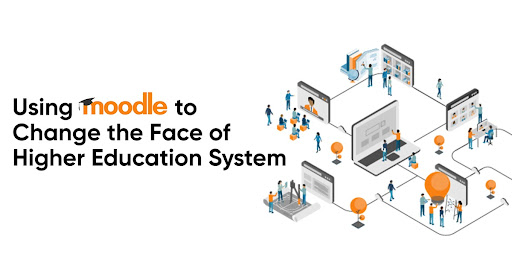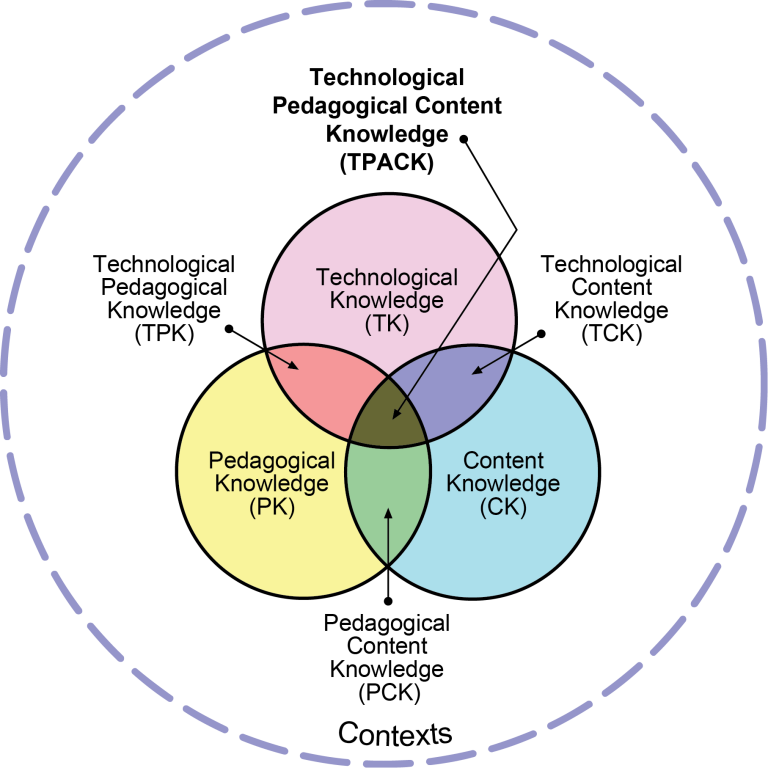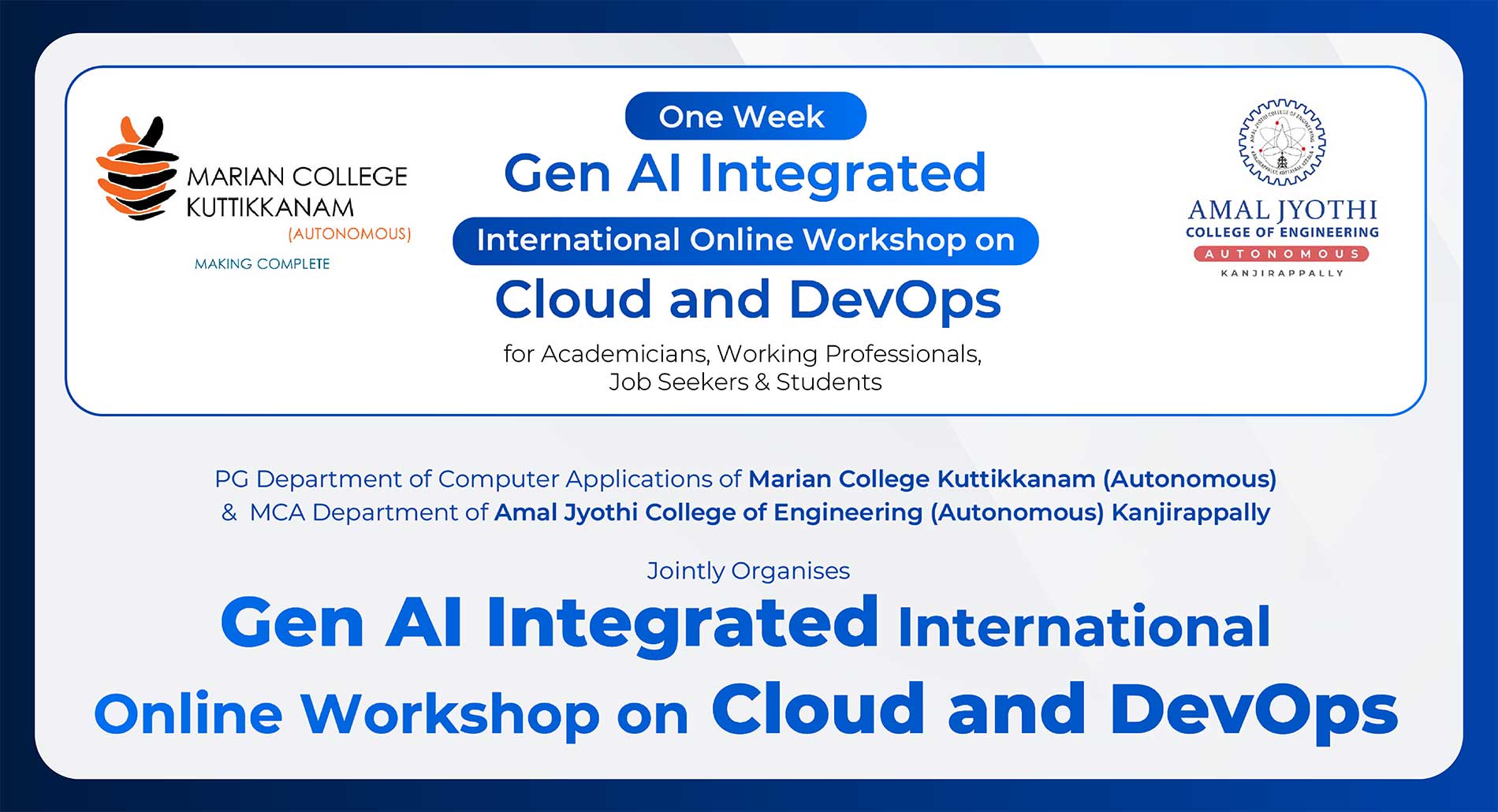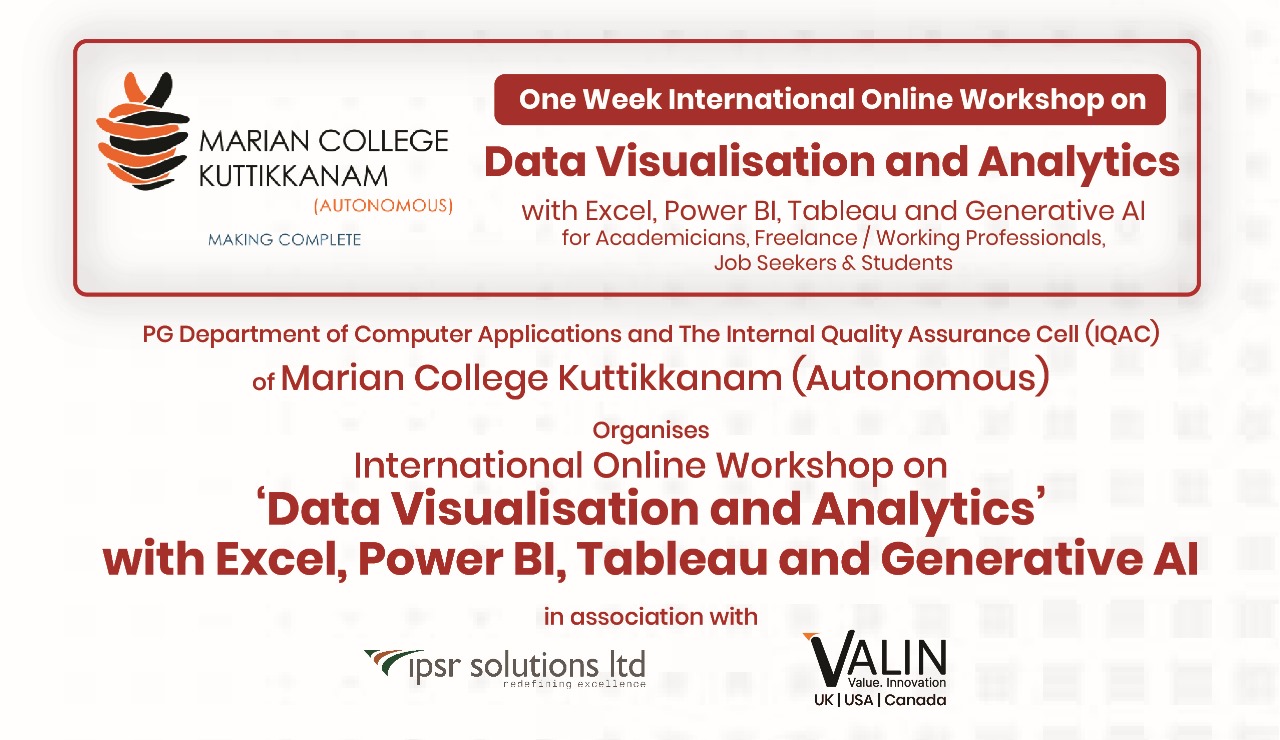
Digitalization has touched every walk of human life paving ways for new ethos in every organization and activity. The pandemic life has catalyzed a revolutionary change steering human practices to technology-centric platforms. The biggest of its change is in the field of Education. The entire system of Education is in the process of exploration of newer ways and means to ensure quality and trustworthiness.
Many platforms both by proprietary vendors and open-source communities are coming up with various solutions in online education. Obviously, the challenge is to find the right solution and the right blend of methodologies that suit the needs of the organization. Preventing malpractices in online Assessments also remains a serious challenge.

Various online platforms for synchronous learning have become very common, but the challenges of equating it to a regular face-to-face model in terms of quality and efficiency are many.
The issues of building rapport with the students, ensuring effective students’ participation, building control in the management of activities are the commonly raised issues. Moreover, the technical issues of connectivity both real and bogus claims are quite usual excuses on the part of students. Though student engagement through a better pedagogical approach could simplify the issues to a greater extent, it would not serve as a complete solution.
An asynchronous model could be effectively used as an online mode as it makes the learning process much more flexible and takes its own time. The effectiveness of this mode could be ensured by managing the learning process through a well-structured LMS (learning management system). The course curriculum should be presented using the appropriate pedagogical approach to make the students more engaging and self-paced.
A harmonious combination of the regular face-to-face and online mode may continue to be an effective model in higher education in the future. The emphasis of the New Educational Policy 2020 (NEP 2020), to a greater extent promotes students’ autonomy and transdisciplinary mobility. This is an indication of the recognition of the students’ academic liberty and flexibility to progress in the academic stream with industrial engagements side by side. In this scenario, the blended model of education could be an effective Model to bridge the situation.

Modern education demands the integration of the subject content with the appropriate pedagogy and technology, to enhance the students learning and attainment of the learning outcomes. The curriculum needs to be formulated as a Technological Pedagogical Content Knowledge (TPACK).
In a TPACK framework, a curriculum space has three-component (i) content Knowledge (ii) pedagogical knowledge, and (iii) Technological knowledge that serves as a support system for teaching and learning. These three components are interrelated another as projected in the diagram above. Each interconnected space may define a learning activity or resource to facilitate learning. The common intersection of the three domains in the TPACK environment facilitates maximum efficiency in the learning space. Development of the curriculum into an appropriate TPACK framework will serve as the most effective learning experience for the scholars.

Modular Object-Oriented Dynamic Learning Environment (MOODLE): is a personalized learning platform that is secure, robust, and agile intended to create and manage learning experiences for the learners. This learning platform is built with several resources and activities that keep the learner much active and engaging throughout the course. The functionality and plugins in the Moodle platform are designed in place of various learning theories like social constructivism and active learning to steer the learner through the zone of proximal development. A Moodle platform created and customized in lines of a pedagogical approach will serve as an ideal platform for individualized and group learning.
Moodle being an open-source product with a lot of functionalities, has gained wider acceptance at the higher educational level. The government and private sectors have also widely implemented Moodle for their training requirements.
Recently, I had an opportunity to participate as a resource person in a Faculty Development Programme (FDP) organized by the Kerala State Higher Education Council (KSHEC). The major focus of the FDP is to familiarize the best practices in online education with Moodle implementation.
Other resource persons in the FDP were Dr. Binu Thomas (Associate Professor, Marian College Kuttikkanam (Autonomous), Joint Director of Marian Institute for Innovative Teaching – Learning and Evaluation (MIITLE)), Dr. Mendus Jacob (Director, MCA Programme, Marian College Kuttikkanam (Autonomous)) and Dr. Brijesh George John (Associate Professor and Corporate Relations Manager at Marian College Kuttikanam, International career consultant, soft skill trainer and Youtuber).
Few highlights and productive inputs of the session are detailed below
Pedagogy refers to how to teach. If we need to generate a learning experience for the learner, the most important part is how to deliver the content to the students in a most conducive manner. Mostly, many methods and strategies that we adopt in teaching-learning environments are rooted in learning theories.
One of the most approved and accepted theories especially at the higher education level is the theory of Social Constructivism by Vygotsky. The theory suggests that cognitive functions are the product of social interaction. Hence Cooperative and collaborative learning methods contribute much to foster effective learning among students. Various activities and resources in Moodle could be effectively applied as tools to enrich an active learning environment based on social constructivism.
Resources and Activities
A ‘resource’ is any static information in the course, which can be used to present non-interactive content items.
Some of the simple resources could be some text or image or link/URL.
There are also other resource types such as:
Label: Some small text elements, which can be used to properly organize resources or activities on the home page of the course.
Web page: This is a web page, within the Moodle course. This is useful when information needs to be presented on a single, scrollable page.
Embedded video: Videos can make the course more engaging. But videos are huge in size and can consume so much bandwidth that may increase the hosting charges. So it is better to host videos in a convenient video hosting service such as YouTube and embed the video in the course pages as required. Videos from domain experts or topic-related news items may also be embedded in the course content, without violating the copyright terms.
Book: A book is a multi-page resource that is formatted like a book, containing main chapters and subchapters. Using books keeps the course home page neat, by avoiding multiple links to related topics. Ensure sequential access of content without confusion.
File: This could be any file on your computer or a file that is already uploaded to the Moodle server. Files can be useful in providing detailed course materials without cluttering the course page. You can ensure that students read the files by making other activities dependent on this information – eg. or attain pass marks in a related quiz.
Folder: Folders in Moodle are similar to folders in other programs. They act as containers for other files and folders. The folder allows to the organization of related content so that information can be structured as required and can be made available from a single link on the course home page.
Content package (IMS, SCORM, etc): These are reusable e-learning materials based on certain technical standards. When such packaged learning material is available, it may be uploaded into a Moodle course. You may also use these technologies to bundle and export the work you have done in one Moodle course to another.
An ‘activity’ in Moodle is something that a student is expected to do. Normally, this is interactive and some kind of interaction happens with the teacher or other students.
Some of the activities in Moodle are:
Assignments: Teachers may give assignments to students, which may be done online or created offline and files uploaded. Teachers can grade the students’ works or give comments.
Quiz: Quizzes allow teachers to conduct online examinations by presenting different questions to the students. These can be set up to be automatically evaluated and relevant feedback comments given to students.
Database: Students can collaborate to create a database with relevant information
Glossary: Students can collaborate to create a list of definitions, which may continue to be used as a resource in the course.
Forum: There may be different types of forums like research forums, discussion forums, and peer evaluation forums. Basically, a forum allows teachers and students to have asynchronous discussions by way of different discussion threads.
Wiki: The ‘wiki’ allows participants of a course to create and edit a collection of subject-specific web pages, in the collaborative ‘Wikipedia’ way.
Feedback: This tool allows teachers to conduct periodic surveys to collect feedback from students about the course.
Chat: This feature allows students to chat among themselves or with the teacher in real-time.
H5P activity: This activity allows teachers to create interactive HTML5 content to be created using the H5P format and used within the course.
Lesson: The Lesson activity offers flexible ways for teachers to present content to the students followed by certain choices to assess their learning. Based on the students’ responses they may be presented with different resources or activities that personalize and enhance their learning.
Workshop: This tool allows to facilitate peer evaluation. Students can submit their submissions, which can be viewed and assessed by fellow students, against a grading scale set by the teacher.
External Tool(s): Learning Tools Interoperability (LTI) is a standard that allows learning tools from one website to be used across multiple websites. When such tools are available, those could be used. Even otherwise, other external tools may be embedded within or linked to, from the course, for enhancing Moodle functionality.
Mentimeter: Interactive live polling, quiz, etc
Padlet: Padlet allows the creation of dynamic boards which allow participants to insert ideas anonymously or with their names.
Google Forms: Allows for conducting surveys or feedbacks
Kahoot!: A game-based learning platform that allows to combination quiz questions with slides, polls, puzzles, and other question types.
Assessment could be considered as an engine that drives learning. As projected in Bloom’s Taxonomy of learning, Evaluating (Assessment) is termed as higher-order learning. Providing students with various assessment activities will enrich learning. In a broader sense assessment can be integrated into the learning process at three stages (i) Assessment for learning (ii) Assessment of Learning (iii) Assessment as learning.
Moodle does provide the option to convert its activities into assessments, in many ways, thereby enhancing the learning experience.
This is an active strategy of learning. Interim assessments are conducted as part of the formative assessment and for increased student engagement. This drives student learning.
Another high-end option is peer evaluation, where the students are required to assess the work of their peers. This could be done by providing a set of pre-set criteria or rubrics of assessments to the students. When the students evaluate the work of their peers based on rubrics, they get exposed to a better understanding of the content and its higher-end application. This will further drive the students to higher-order learning. Moodle has several resources and activities like workshops, forums that could be effectively used for this purpose.
This refers to the summative assessment that is conducted as midterm tests and external examinations. This assessment will give an indication of how much the students have attained in a particular course or to what extent the Course outcomes are realized. Many resources in Moodle like quiz could be used as a tool for final assessments.
Interim feedbacks and final feedbacks could be collected from log reports that could be downloaded from Moodle. These reports and the assessment data from various activities could be extracted and exported to various analytical software to give insight into the student’s performance. Based on this feedback, appropriate remedial sessions and curriculum up-gradation could be provided.
Positively, proper implementation of a Moodle-based Learning management system tailored with the right pedagogical approach will contribute much to build a better platform that brings life to the education system. Obviously, without doubt, an educational experience with a harmonious blending of online and digital modalities will transform the system into a place of intellectual adventure. Moodle being an open-source platform that is built on strong pedagogical consideration will play its role in changing the faces of the Higher Education system.
Join us for FREE to get instant email updates!

in association with Dates: 23 August to 03 September 2024 […]

Introduction: In the modern education system, data visualization and analytics […]

In a significant stride towards enhancing the quality of higher […]
informative
Dear Deepthi John, Thanks for leaving us such wonderful feedback. We are happy that our blog was informative and valuable for you. If you have any queries, feel free to contact us at academicsolutions@ipsrsolutions.com
it provide all information
Thank You
Thanks for providing all information.
Thank You
Thanks for detailed explanation.
Thank You, for your feedback as our blog was informative and valuable for you.
So helpful to change the teaching pattern.
Dear Sruthy Thomas, Thanks for leaving us such wonderful feedback. We are happy that our blog was informative and valuable for you. If you have any queries ,feel free to contact us at academicsolutions@ipsrsolutions.com
MOODLE is a wonderful platform and all the Teaching faculties must have training to use it properly.
Good session
Very rich information. Thank you
Thank You, for your feedback as our blog was informative and valuable for you.
Informative session